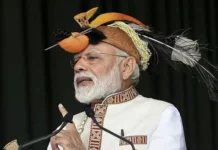 HYDERABAD: Mid-sized and luxury cars as also SUVs will cost more after the GST Council decided to levy an additional 2 to 7 per cent cess on them but exempted small and hybrid cars from any hike.
HYDERABAD: Mid-sized and luxury cars as also SUVs will cost more after the GST Council decided to levy an additional 2 to 7 per cent cess on them but exempted small and hybrid cars from any hike.
The council also lowered the Goods and Services Tax (GST) rates for a number of daily-use products ranging from idli/dosa batter to kitchen gas lighter.
A 2 per cent additional cess will be levied on mid-sized cars, 5 per cent on large cars and 7 per cent on SUVs, taking the total incidence of taxation to pre-GST levels, Finance Minister Arun Jaitley said after an 8-hour long meeting of the panel here.
The council, headed by Jaitley, however, decided not to levy any additional tax on small petrol and diesel cars of up to 1200 cc as well as on hybrid ones.
The date of implementation of the additional cess will be notified later.
“Small petrol and diesel cars enjoyed a tax advantage of 3 per cent post GST. But status quo will be maintained on small petrol diesel cars, so even if it has got cheaper let consumers enjoy the benefit,” Jaitley said.
Tax on mid segment cars had gone down from 48 per cent to 43 per cent and the council decided to increase cess by 2 per cent to 45 per cent, he said.
Large cars got an advantage of 8 per cent, but the council hiked cess by 5 per cent, he said adding SUVs got benefit of 11 per cent post GST, but cess is being hiked by only 7 per cent.
“Cess on cars with seating capacity above 10 but up to 13 as well as hybrid cars will remain unchanged,” he said.
The council, he said, decided that in large vehicles where affordability of consumers is high, the pre-GST rate has not been restored.
“Even though we had a headspace of hiking cess by 10 per cent, it has been hiked by 7 per cent,” the finance minister said.
Jaitley said GST on about 30 items has been lowered after anomalies in the fixation of rates were pointed out.
To deal with businesses which are deregistering brands post GST to avoid taxes, the panel decided May 15, 2017 as the cut-off date for considering as a registered brand for the purpose of GST levy, irrespective of whether or not the brand is subsequently deregistered.
Unbranded food items are exempted from the GST, whereas branded and packaged food items attract 5 per cent rate.
Hence, many businesses are deregistering their brands to avoid the levy.
The tax has been lowered on dried tamarind, custard power, oil cakes, dhoop batti, dhoop and other similar items, plastic raincoat, rubber bands, rice rubber rolls for paddy de-husking, computer monitors and kitchen gas lighters and brooms and brushes.
Also, the deadline for filing of sales return or GSTR-1 for the month of July, the first month of implementation of the new tax regime, has been extended by a month to October 10.
Deadlines for other three returns to be filed under the GST regime have also been extended.
Jaitley said overall GST collections have been robust with over 70 per cent of eligible taxpayers filing returns of about Rs 95,000 crore.
The meeting, the second since the implementation of GST, reviewed the functioning of GST Network – the IT backbone and portal for registration and tax returns under the GST regime.
GSTN on “two-three occasions got overloaded. These are transient challenges and glitches in technology. The council has decided to appoint a committee to interact with GSTN for smooth transition”, the finance minister said.
Since the work is huge, the period of filing of returns has been extended, he said.
Jaitley further said that food stuff sold in open was categorized at zero per cent tax rate while the branded ones attracted 5 per cent.
Some businesses were deregistering their brands and selling under corporate brand name, creating inequality of trade, “so we amended the rule”, he said.
“If you fall in either of two categories, you will pay 5 per cent tax – one, if on May 15, 2017, you had a registered trade mark you have to pay 5 per cent GST.
Two, if you have a mark or a name on which you are entitled to maintain actionable claim or exclusivity, then you have to pay 5 per cent,” Jaitley added.
Khadi fabric sold through KVIC stores would be exempted, he said adding inter-state sales where turnover is less than Rs 20 lakh as also for artisans will not need registration.
Similar dispensation for certain categories of job work, excluding gold, has also been approved.
At its last meeting on August 5, the panel had approved hike in cess on mid, large size cars, SUVs, hybrid and luxury ones to up to 25 per cent, from 15 per cent. Subsequently, an Ordinance was promulgated and the council looked into the quantum of hike.
Car prices had dropped by up to Rs 3 lakh as the tax rates fixed under the GST that came into effect from July 1, was lower than the combined central and state taxes in the pre-GST days. To fix this anomaly, the council raised the cess.
Revenue Secretary Hasmukh Adhia said the council has decided that GSTR-3B will be filed for four more months till December.
“For GSTR-1, 2, 3, we are giving a long rope and we are staggering the return filing date for July,” he said.
“(For) companies with turnover of over Rs 100 crore, the last date for filing GSTR-1 will be October 3. For the rest, it will be October 10,” he said.
GSTR-2 for July will have to be filed by October 31 and GSTR-3 by November 10.
Date of GSTR 1, 2, 3 return filing for month of August will be informed later.
Jaitley said businesses can opt for Composition Scheme till September 30 and the council has also allowed businesses to make rectification in transition form TRAN-1 once.
Under the GST, which replaced over a dozen central and state levies in the biggest tax reform since independence, cars attract the top tax rate of 28 per cent.
On top of this, a cess of 1 to 15 per cent has been levied for the creation of a corpus to compensate states for any loss of revenue from implementation of GST.-PTI






